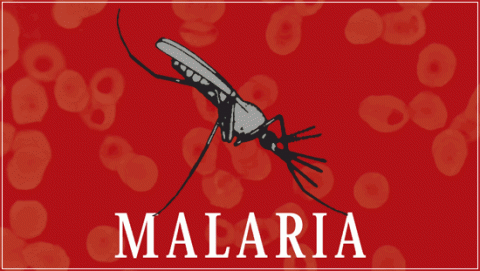New Initiative Underway To Boost Fight Against Malaria In Africa
African News, Featured, Latest Headlines, News Around Africa, South Africa, Southern Africa Tuesday, July 27th, 2021
(AFRICAN EXAMINER) – A major ground-breaking project is underway to boost the fight against malaria in Africa, RBM Partnership to End Malaria, a frontline global platform for coordinated action against the disease, has said.
The RBM Partnership to End Malaria which was originally established as Roll Back Malaria (RBM) Partnership in 1998, mobilizes for action and resources and forges consensus among partners.
The Partnership is comprised of more than 500 partners, including malaria endemic countries, their bilateral and multilateral development partners, the private sector, nongovernmental and community-based organizations, foundations, and research and academic institutions. Its Secretariat is hosted by the United Nations Office for Project Services (UNOPS) in Geneva, Switzerland.
The Partnership said in a statement on Monday that a new project initiated by
kENUP Foundation and BioNTech has been jointly put together to develop the first mRNA-based prophylactic malaria vaccine.
The statement noted that BioNTech’s COVID-19 vaccine developed in partnership with Pfizer is one of the first mRNA vaccines to be approved for use. It also added that proceeds from the COVID-19 venture will contribute to the development of the first malaria vaccine using mRNA technology.
It further explained that the project which is supported by the World Health Organization (WHO), the Africa Centres for Disease Control and Prevention, the European Commission and European Investment Bank, and international partners, aims to use mRNA technology as part of an initiative aimed at expanding vaccine development for, and manufacturing capacity across Africa, to fight malaria, a disease that ravages the continent each year.
Malaria is a preventable and treatable disease, yet it impacts half the world living in the poorest areas, putting people’s lives and livelihoods at risk, distressing fragile health systems, and keeping families in cycles of poverty.
Despite significant progress over the past decades with 7.6 million lives saved, malaria continues to infect over 200 million people annually, leading to over 400,000 deaths and suffering that disproportionately impacts children and pregnant women in Africa.
In landmark reports on malaria eradication published in 2019, experts called for stepped up innovation and transformative tools to achieve a malaria-free world within a generation.
Meanwhile, the clinical trial for the first-generation mRNA malaria vaccine candidate is planned to start by the end of 2022. BioNTech also plans to establish sustainable mRNA manufacturing capabilities on the African continent to secure a sustainable supply of vaccines, including those against COVID-19, and possible new ones against malaria, HIV and tuberculosis.
Interestingly, additional investments by the European Commission and the European Investment Bank would co-finance the product development and African-based infrastructure and auxiliary services once the vaccine candidate enters late-stage clinical development in Africa.
Chief Executive Officer (CEO) of RBM Partnership to End Malaria, Dr. Abdourahmane Diallo said the announcement of the plan to develop an mRNA-based, highly effective preventative malaria vaccine to protect people of all ages marks a major step toward developing game-changing technology for malaria eradication.
Dr. Diallo noted that the malaria fight has long benefited from innovations brought forward by committed partners and we welcome new commitments such as this one as a critical investment towards ending an age-old, preventable and treatable disease that still infects hundreds of millions of people each year.
“Our current toolset of innovations alone cannot defeat malaria, particularly in the hardest hit places. Only with new investments in innovation, new commitments and partners will we be able to develop and roll out the transformative tools needed to stay one step ahead of the ever-evolving mosquito and parasite”, he added.
He also observed that the COVID-19 pandemic has shown the world how investments in research and development for game-changing technologies can lead to breakthrough solutions in record time.
This, according to him, has also underscored the critical importance of investing in end-to-end manufacturing capacity that will help ensure equitable and sustainable access to these life-saving tools.
“We welcome the plan to build manufacturing capability in Africa to prepare for the deployment of a successful vaccine and encourage continued scale-up of proven interventions to those who need them most to defeat malaria and build a healthier, safer and fairer world”, he stressed.
It may be recalled that the search for a highly efficacious, preventative malaria vaccine for all ages has been elusive, making continued innovation essential. Moreover, ithas taken over 30 years and hundreds of millions of dollars in Research and Development (R&D) investment for the first malaria vaccine, RTS,S, to be piloted in Ghana, Kenya and Malawi starting in 2019.
Since then, more than 650,000 children have received the vaccine offering additional malaria protection. Delivered by a coalition of partners including the WHO, PATH and GSK, RTS,S is the only malaria vaccine to have successfully completed Phase 3 trials and has been shown to reduce clinical malaria cases by 55 percent during the 12 months following primary vaccination, and by 39 percent over 4 years.
Earlier this year, researchers from the University of Oxford’s Jenner Institute reported findings from a second phase trial of its R21 vaccine based on a group of 450 children in Burkina Faso, demonstrating a high-level efficacy of 77 percent over 12-months of follow-up. However, this vaccine still needs to undergo Phase 3 trials, which critically will include areas where malaria occurs year-round.
The statement also suggested that more investments are needed to expand access to current tools
“Alongside making progress on a suite of new tools and approaches to end malaria, malaria’s complexity makes it equally important to continue to scale up proven, existing tools that are failing to reach the people who need them most.
“These include newer tools like next generation mosquito nets and seasonal malaria chemoprevention (SMC) and approaches that use data and digital tools to better target life-saving tools to those most in need”, it further explained.
Related Posts
Short URL: https://www.africanexaminer.com/?p=65873






















